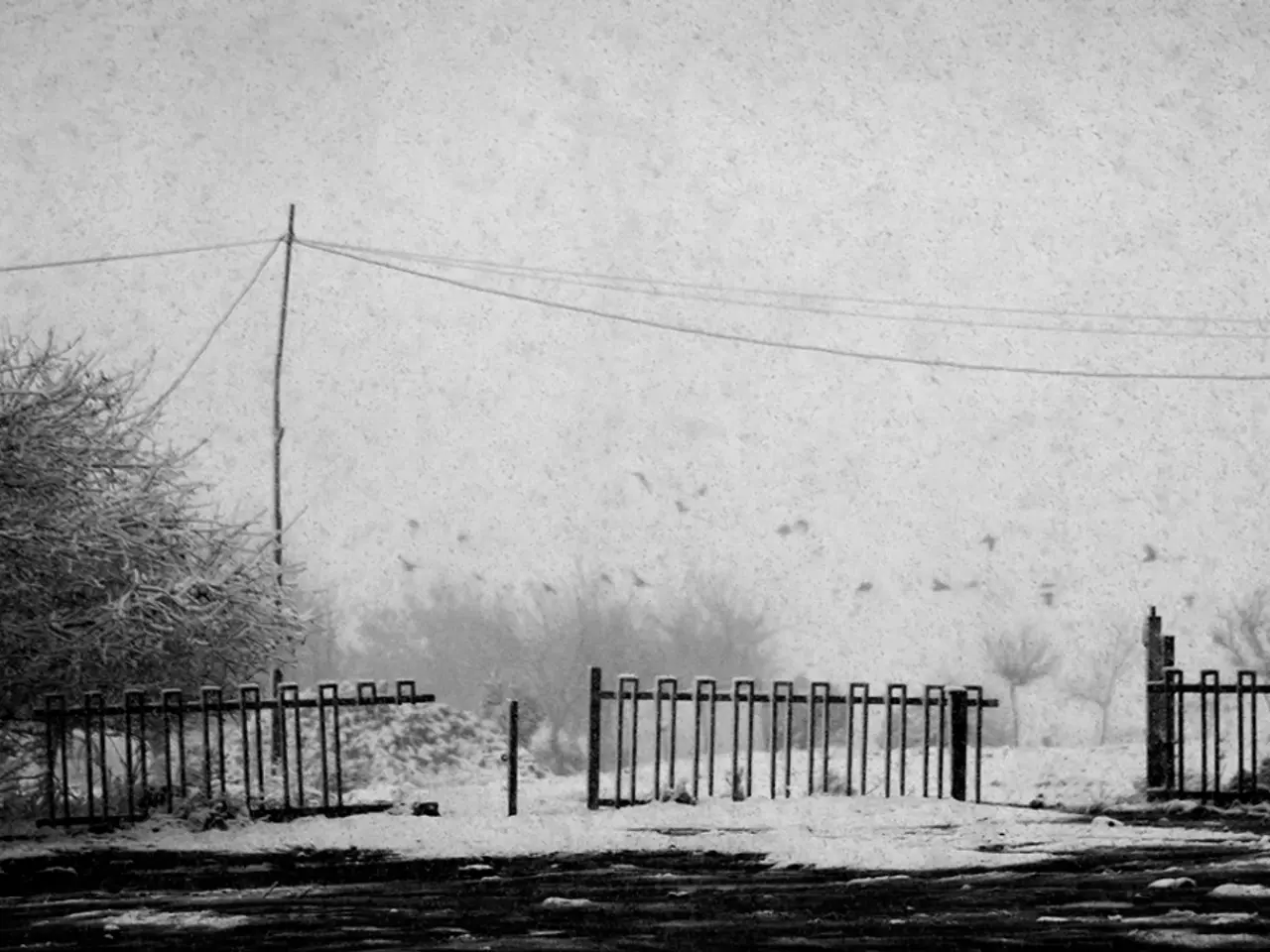Wartime Recollections: A Veteran Remembers Facing Japanese Invaders on the Front Lines in South China during World War II
The Chinese internet is celebrating the 80th anniversary of a historic milestone with a themed series titled "Guardians of Memory." This series aims to commemorate the victory of the Chinese People's War of Resistance Against Japanese Aggression (1931-1945) and the World Anti-Fascist War, while underscoring its lasting impact.
The victory was a great victory for the Chinese people, not only marking the end of Japanese aggression but also benefiting anti-fascist allies and people around the world who fought shoulder-to-shoulder. The series underscores the importance of "learning from history to build together a brighter future."
One of the key focuses of the series is the role of the Communist Party of China (CPC) as a central pillar in the victory. Several Chinese veterans of the War of Resistance Against Japanese Aggression, now in their nineties, are sharing their experiences of joining the Chinese military and bravely fighting Japanese invaders on the front lines decades ago. Their stories are a testament to the bravery, resilience, and patriotism that sustained the prolonged struggle.
Veterans like Wen Yunfu recounted living in constant fear under Japanese invasion and emphasized never wanting war again, reflecting the psychological and physical toll on soldiers. Young participants such as Lin, who served as a messenger and later in a field hospital, illustrate how civilians, including children, were mobilized and directly involved in resistance efforts. Her sister’s martyrdom inspired continued resistance, exemplifying the intertwining of personal sacrifice and national struggle.
The efforts of guerrilla fighters disrupted Japanese operations and helped maintain Chinese territorial control. International cooperation was also crucial, as seen with the Flying Tigers (American volunteer pilots) who aided Chinese forces, with key bases such as Zhijiang Airport symbolizing Sino-American frontline collaboration. The surrender of Japanese forces in places like Zhijiang underscored the victory achieved through the combined efforts of Chinese military resilience and Allied support.
The series is divided into three parts: "Guardians of Memory," "Witnesses of Struggle," and "Practitioners of Peace." The first part focuses on the veterans as the living heroes who safeguarded national dignity with their own flesh and blood. The second part features the witnesses to those turbulent years of war, while the third part emphasizes the importance of learning from history to build a brighter future.
'We captured all the Japanese soldiers' - a statement made by one of the veterans in the series. This victory was a great victory of the national spirit with patriotism at its core. The series serves as a poignant reminder of the great victory and the sacrifices made by the Chinese people in the fight against Japanese aggression.
References:
[1] Wu, J. (2020). The War of Resistance Against Japanese Aggression: The Chinese People's Struggle for Survival. Oxford University Press.
[2] Zhang, L. (2015). Mobilizing for War: The Chinese Home Front During the War of Resistance Against Japan, 1937-1945. Stanford University Press.
[3] National Museum of China. (n.d.). War of Resistance Against Japanese Aggression. Retrieved from https://www.china.org.cn/chinese/history/2009-08/14/content_16918801.htm
[4] Chinese People's War of Resistance Against Japanese Aggression. (n.d.). Retrieved from https://en.wikipedia.org/wiki/Chinese_People%27s_War_of_Resistance_Against_Japanese_Aggression
[5] Chen, J. (2015). The Flying Tigers: America's Chinese Air Force. Osprey Publishing.
The series "Guardians of Memory" serves as a testament to the Chinese people's role in various war-and-conflicts, particularly the Chinese People's War of Resistance Against Japanese Aggression (1931-1945) and the World Anti-Fascist War. Its focus on the veterans' experiences, as shown by veterans like Wen Yunfu, highlights the crucial role of politics, particularly the Communist Party of China (CPC), in these conflicts. The series' theme of learning from history to build a brighter future is a reflection of its relevance in current general-news discourse.








